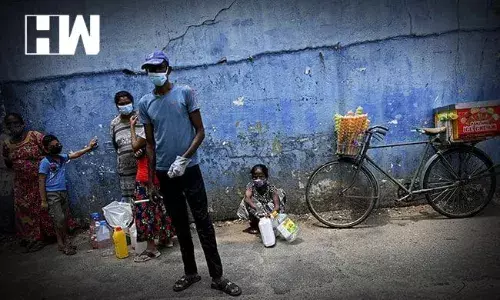Colombo: Sri Lanka is going through a huge economic crisis. Sri Lankans faint in day-long queues waiting for fuel. Sri Lankans are likely to witness a power cut and are witnessing a shortage of medicines.
A critical lack of foreign currency has left the nation unable to pay for imports and has led to a shortage in everything from life-saving medicines to cement.
Since dawn people are standing in lines for fuel purchases. The prices of food packages have increased. People are complaining about the government’s mismanagement.
“I’ve been standing here for the past five hours,” Sagayarani, a housewife, told AFP in Colombo while waiting for her share of kerosene, used to fire the cooking stoves of the capital’s poorer households.
She said that she has seen three people fainting, and she was supposed to be at the hospital for her treatment. But as her husband and son are working, she has no choice but to stand in line.
“I haven’t eaten anything, I’m feeling very dizzy and it’s very hot, but what can we do? It’s a lot of hardship,” she said
The trucks at the port are unable to carry out food and building materials to other urban centers or bring back tea from plantations dotted around Sri Lanka’s verdant inland hills.
Transportation is unavailable, some hospitals have suspended routine surgeries, and student exams were postponed this month because schools ran out of paper.
“I’ve been living in Colombo for 60 years and I’ve never seen anything like this,” Vadivu, a domestic worker told AFP.
“There’s nothing to eat, there’s nothing to drink,” she added. “The politicians are living in luxury and we are begging on the streets.”
Public Utilities Commission of Sri Lanka has announced that they will be witnessing 10-hour daily power cuts from Wednesday.
The Ceylon Electricity Board said in a statement that they were “compelled to take demand management measures due to inadequate power generation, as a result of fuel shortage and unavailability of generators.”
As an independent media platform, we do not take advertisements from governments and corporate houses. It is you, our readers, who have supported us on our journey to do honest and unbiased journalism. Please contribute, so that we can continue to do the same in future.

